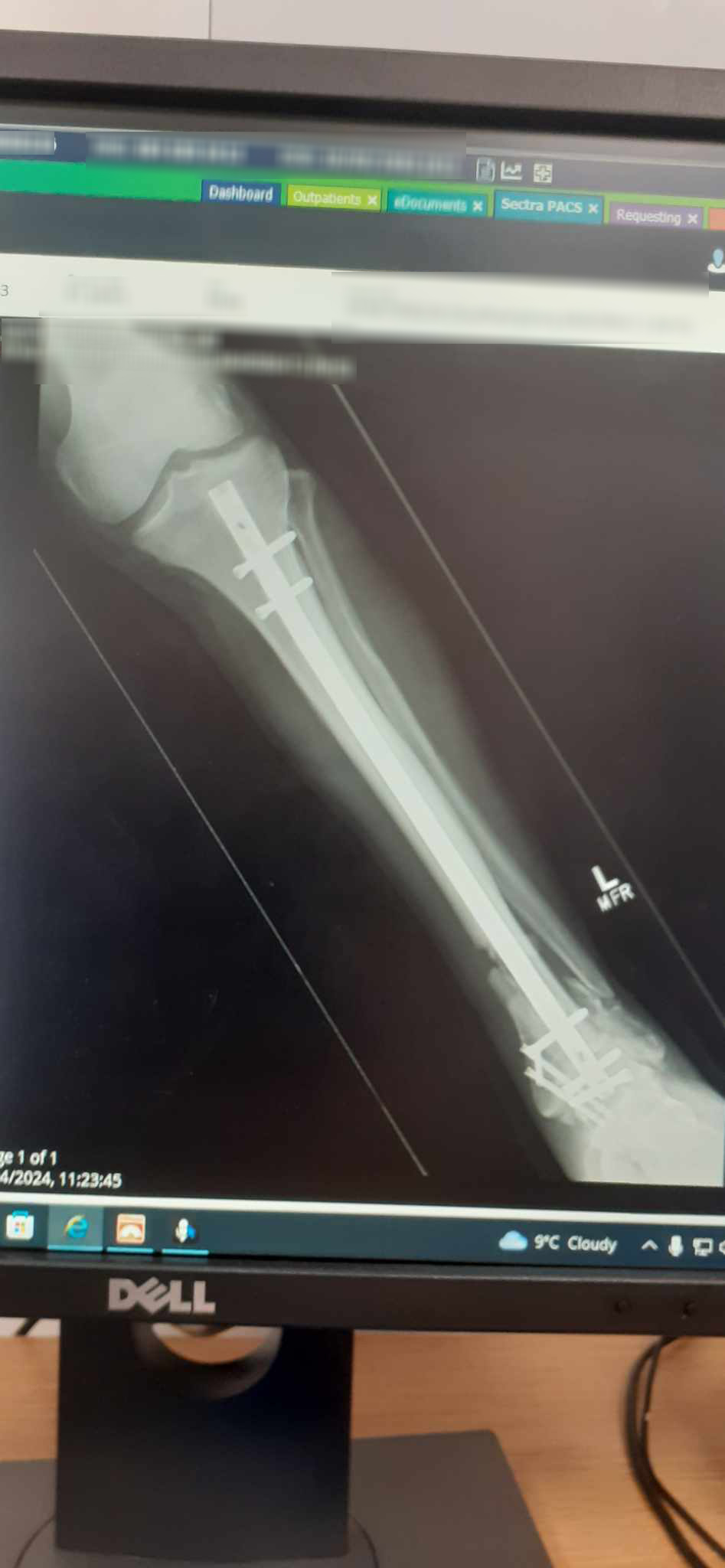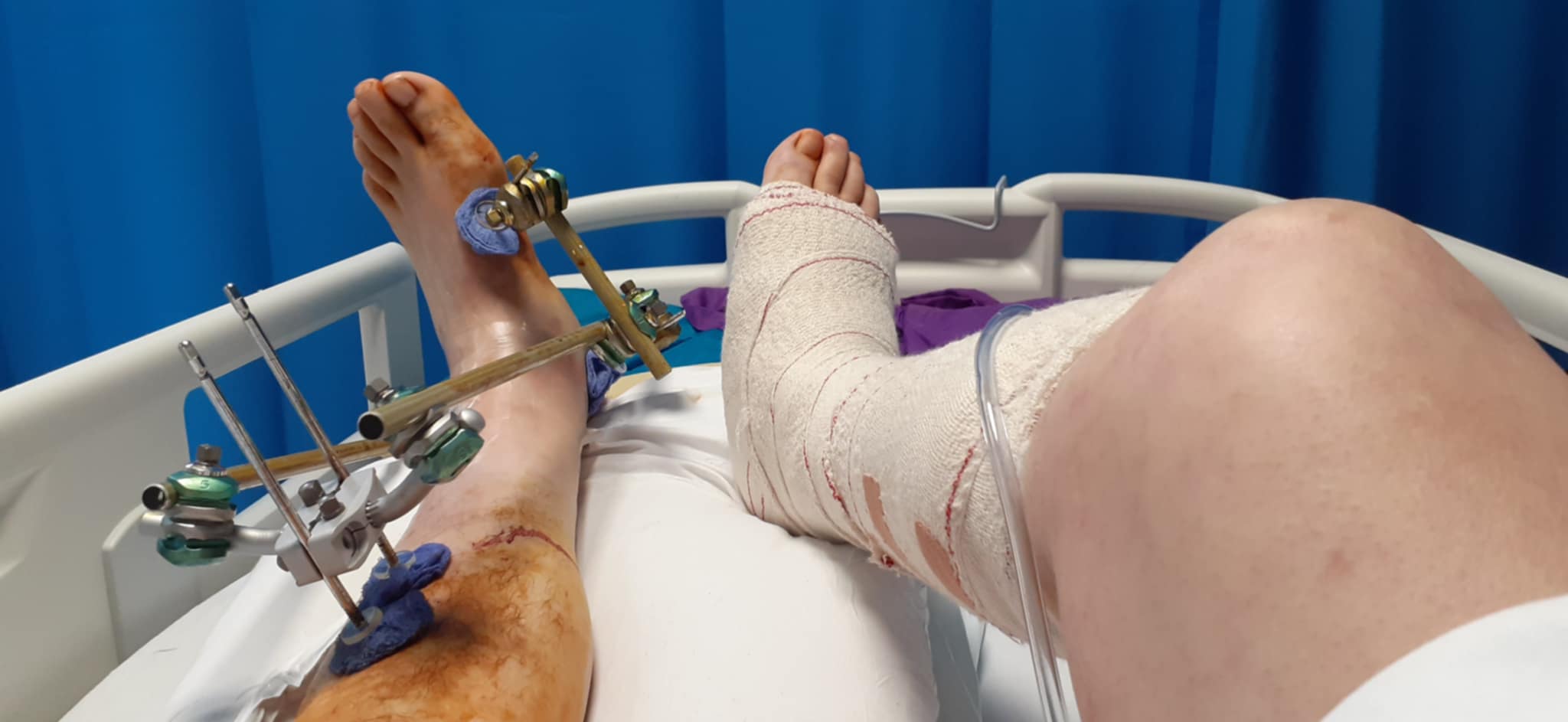Charlie Joyner fixed his first car when he was just 12 years old – a Lada Riva. Almost 50 years later, while working on the underside of a van, disaster strikes as the 650Kg engine falls out of the vehicle crushing Charlie beneath it. He has critical limb-threatening injuries.
61-year-old Charlie was born and bred on the Isle of Wight. On Thursday 14 March 2024, he’s working in the pit under the van. There’s no one else around.
As the engine ricochets off his head, he instinctively throws his arms out in front of him to catch the falling object. As he does, he hears a loud cracking noise and glances down. The pressure from the weight of the engine has soared through his body, shattering his ankle and foot.
“My foot was hanging off and had twisted right round,” says Charlie.
“I was looking at the bottom of my left boot where the top of my foot should have been. I realised I was in a lot of trouble.”
Charlie picks up his left leg, but his foot droops back down to the ground.
Still in the pit of the garage, Charlie knows he needs to muster up the strength to get help. But as he tries to stand his left foot gives way and completely disappears from underneath him.
“I saw a bone sticking out the side of my leg and knew I really was in trouble now,” he says.

An X-ray showing the metal rod and screws in Charlie’s leg.
With his phone at the other end of the workshop, Charlie clambers up out of the pit and onto his belly as he crawls for help.
Not realising two of his toes have broken on his right foot, he hops across the garage, dragging his left foot behind him. He eventually reaches the phone and calls for help.
12 minutes after the 999 call the Hampshire and Isle of Wight Air Ambulance crew are dispatched – they are airborne just four minutes later. En route, the team are planning potential plans and treatment.
Two paramedics from the Isle of Wight Ambulance Service arrive within 20 minutes of the call. They advise our team that Charlie has a near amputation to his right foot.
Because of Charlie’s rural location, the pilot is able to land the helicopter extremely close to the scene – saving vital minutes.
“I heard it coming into land,” remembers Charlie. “I thought it was brilliant. But most of all I just felt so relieved.”
Charlie has an open fracture and dislocation to his left ankle, which is still in his shoe. And it was later discovered that he has also snapped his fibula.
The team administer sedative medicines to make Charlie as comfortable as possible while they perform a fracture reduction (a procedure where the crew push or pull the ends of the fractured bone until they line up, before putting a vacuum splint on the leg to help hold the bone in place).
The team safely load Charlie into the helicopter and fly him over the Solent to the nearest major trauma unit, University Hospital Southampton, where he is taken for emergency surgery.
As well as stitching his head back together, the surgeons fix an external cage to his left leg to reconnect his foot and keep it in place.

“I was visited by the doctor the following day who told me how bad the leg was,” recalls Charlie.
“He said it would have been quicker and easier for them to amputate it. But I desperately didn’t want to lose my leg – not that it’s a lot of good at the moment.”
After further surgery and three-and-a-half weeks in hospital, Charlie is discharged home to his family. With only a brief period of using a wheelchair, he is now standing and walking independently – much to everyone’s amazement.
“Despite everything that’s happened, I’m very happy. Not with my injury, of course, but the fact I’m getting so much better,” says Charlie.
“Sure, my life has changed completely. I’m never going to be able to fix cars again. But I was alone, isolated and in a lot of pain.
“Without the Air Ambulance, I probably would have died – and I definitely would’ve lost my leg!
“I’d like to say a massive thank you.
“Thank you to the team who came out to me and to the people who support the Air Ambulance. I never even knew it was a charity. I always just assumed it was funded by the NHS.
“It’s so important to everyone in our community – especially to us here on the Isle of Wight. I never thought it would be me who needed it.”









